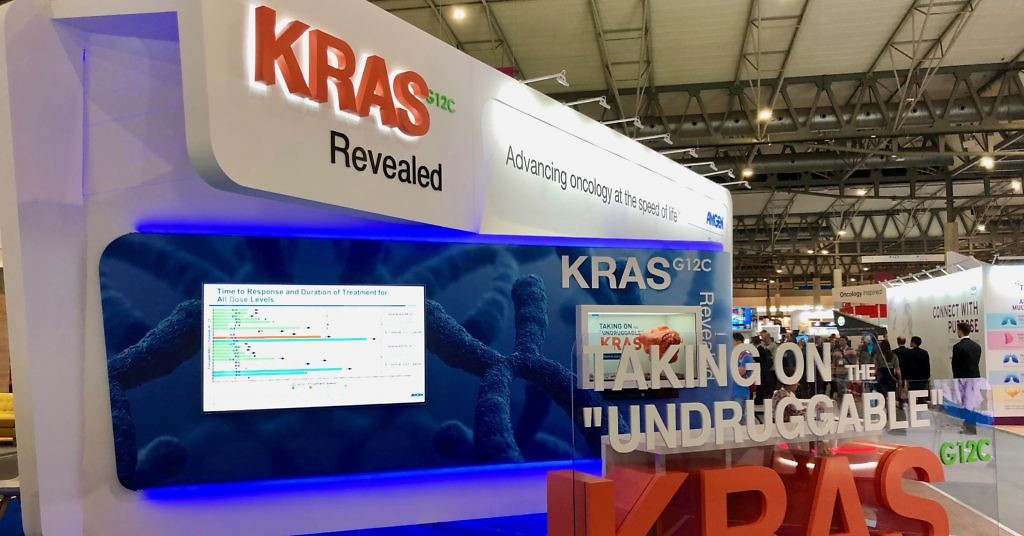For years we’ve followed the trials and tribulations of targeted therapies seeing many approved and quite a few disappear forlornly (and officially) off to dog drug heaven. Many more sit in no-man’s land as companies eagerly wait in a holding pattern for other trial readouts in different tumour types. Sadly, sometimes these studies don’t generate enough compelling data either. With so much competition about, there are no shortcuts or low-hanging fruit in biotech or cancer drug development any more.

En route to Chicago and ASCO!
Then along came antibody drug conjugates (ADCs), with some encouraging results in a range of cancers in both solid tumours and hematologic malignancies that lead to the approval of several new therapies.
After that, the next big advance was immunotherapies, specifically checkpoint blockade, with encouraging single agent activity in melanoma, lung, and even urothelial bladder cancer. We’ve also seen the promise fo combining two different checkpoints such as nivolumab and ipilimumab together in metastatic melanoma, albeit with an increase in toxicities.
This is all very well and good, although the challenge remains that the majority of patients either respond to therapy and relapse, or do not respond at all, depending on the circumstances, the tumour type and the regimen. We still have a long way to go in moving the needle and creating a new paradigm shift on a broad scale.
So what happens when we start to combine modalities – such as targeted therapies with immunotherapies?
Uh-oh, I hear the distant cries of disagreement erupt…
- Remember vemurafenib plus ipilimumab in metastatic melanoma was scuppered by severe hepatitis?
- What about osimertinib plus durvalumab in NSCLC and the increased incidence of ILD?
Both of these statements are true, and yet… we should not assume that all mixed therapy combination approaches are doomed on the basis of a mere n of 2. What happens if some are synergistic or additive? What happens of there are hidden gems that teach us new ways of doing things rather than doing the same old thing just because it’s always been done that way?
With this in mind, I’d like to open the door on our first ASCO 2016 Preview series with a look at novel combination approaches in development that caught my eye.
What are the early hints and signals that we can learn from the data? Which companies are evaluating imaginative new ideas that may turn the tables on traditional thinking? The ideas discussed here may well surprise a few people.
To learn more, Subscribers can log-in below or you sign up for a subscription and join the ever burgeoning BSB club of sophisticated lay people – including investors and commercial/new product development people – who can really understand and appreciate the fundamentals of cancer R&D…
This content is restricted to subscribers






 In Chicago, BSB interviewed Dr Johanna Bendell from the Sarah Cannon Research Institute in Nashville, Tennessee to find out more about what she and her colleagues have been doing and where they plan to go next.
In Chicago, BSB interviewed Dr Johanna Bendell from the Sarah Cannon Research Institute in Nashville, Tennessee to find out more about what she and her colleagues have been doing and where they plan to go next. Continuing part two of our mini-series on colorectal cancer, today we move from the big scale Immunoscore study to small subsets of disease that are looking interesting in several ways.
Continuing part two of our mini-series on colorectal cancer, today we move from the big scale Immunoscore study to small subsets of disease that are looking interesting in several ways. We aren’t talking about financial things such as cost toxicity, or even how doctors should be paid, but meaty scientific aspects that we need to watch out for. If we are going to improve on cancer research and R&D in the future, these issues will be important.
We aren’t talking about financial things such as cost toxicity, or even how doctors should be paid, but meaty scientific aspects that we need to watch out for. If we are going to improve on cancer research and R&D in the future, these issues will be important.